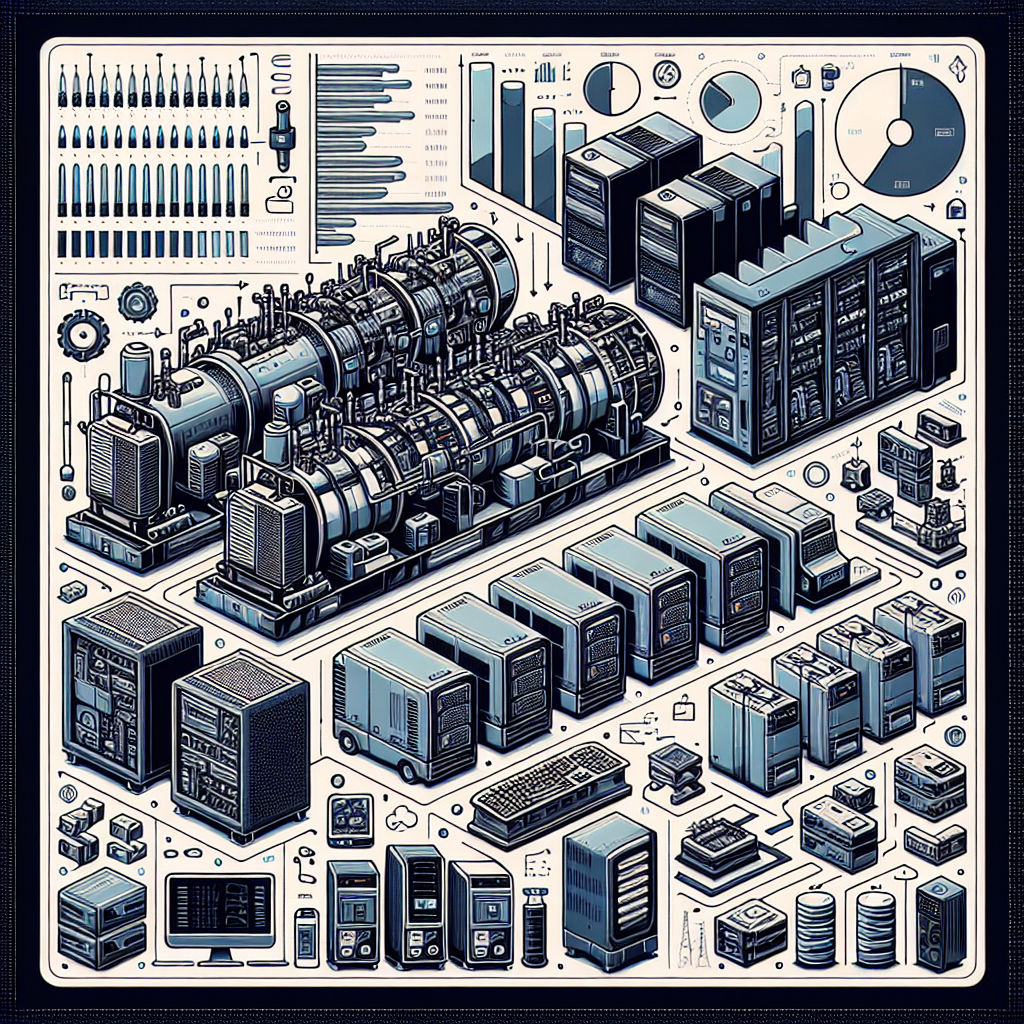Data centers are essential for businesses to store and process large amounts of data. To ensure uninterrupted operations, data centers rely on backup generators to provide power in case of outages. Understanding the different types of data center generators and their applications is crucial for ensuring the reliability and efficiency of these critical facilities.
Diesel generators are the most common type of backup power source used in data centers. They are reliable, efficient, and cost-effective, making them a popular choice for many businesses. Diesel generators work by burning diesel fuel to generate electricity, providing a steady and consistent power supply during outages. These generators are typically used for short-term power outages and can be started quickly to prevent data loss or downtime.
Natural gas generators are another popular option for data centers. Natural gas is a clean-burning fuel that is readily available and cost-effective. Natural gas generators are more environmentally friendly than diesel generators and produce lower emissions. They are also more efficient and require less maintenance, making them a preferred choice for many data center operators. Natural gas generators are ideal for long-term power outages and can provide reliable power for extended periods.
Propane generators are similar to natural gas generators but use propane gas instead of natural gas. Propane generators are versatile and can be used in a variety of applications, including data centers. Propane is a clean-burning fuel that is easy to store and transport, making it a convenient choice for backup power. Propane generators are reliable, efficient, and cost-effective, making them a popular option for businesses looking for a dependable backup power source.
In addition to traditional fuel-powered generators, data centers can also utilize renewable energy sources such as solar and wind power. Solar panels and wind turbines can be integrated into data center facilities to provide clean and sustainable backup power. Renewable energy sources can help reduce the carbon footprint of data centers and lower operational costs. While renewable energy sources may not be as reliable as traditional generators, they can be used in conjunction with backup generators to provide a more sustainable and environmentally friendly power solution.
Understanding the different types of data center generators and their applications is essential for ensuring the reliability and efficiency of these critical facilities. By choosing the right backup power source for their specific needs, data center operators can minimize downtime, prevent data loss, and ensure the continuous operation of their facilities. Whether using diesel, natural gas, propane, or renewable energy sources, selecting the appropriate generator for a data center is crucial for maintaining the integrity and security of the stored data.


Leave a Reply